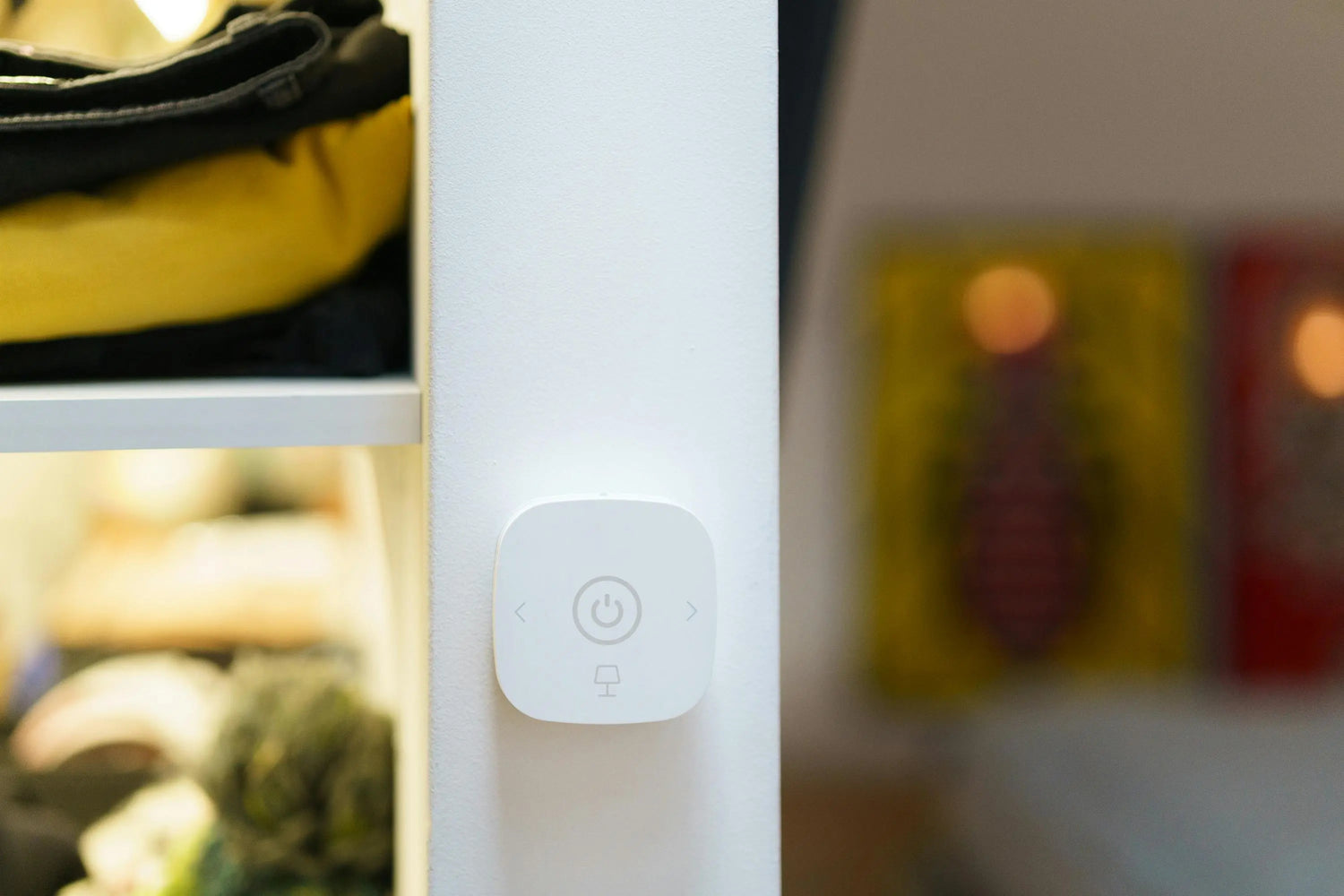The Ultimate Guide to Solar Panels for Home and Off Grid Living.
Solar panels are often the go-to choice for sustainable home energy. With their efficiency and numerous benefits, it's no wonder they're so popular. However, choosing the right solar panels can be daunting, especially with so many options available. If you're a first-time buyer, here are some key considerations to help you make the best decision.
What Are Solar Panels?
Solar panels are key devices in harvesting solar energy and converting it into electrical power. Composed of numerous photovoltaic (PV) cells, these panels are crucial for capturing sunlight and initiating the process of energy conversion.
To explore this information in realtime, ask RAE, the world's first AI Solar Assistant.
How Do They Work?
- Absorption of Sunlight: Each solar panel contains PV cells made from semiconductor layers of crystalline silicon or other materials. These layers absorb sunlight, creating a field of energy across the cells.
- Generation of Electric Current: When sunlight interacts with the PV cells, it excites the electrons, causing them to flow and generate direct current (DC) electricity.
- Conversion to Usable Power: The DC electricity can't be used directly by home appliances. Hence, it's sent to a solar inverter, which converts it into alternating current (AC), the form of electricity suitable for household use.
- Power Distribution: Once converted, this AC electricity is routed through your home’s wiring, powering everything from small gadgets to large appliances.
By seamlessly integrating these components, solar panels provide a clean, sustainable energy solution that can significantly reduce electricity bills and carbon footprints.
A home solar panel system is comprised of several crucial components, each playing a vital role in harnessing and utilizing solar energy. The sun, as the primary source of energy, emits solar radiation which is captured by solar panels. These panels, consisting of layers of silicon cells, a metal frame, a glass enclosure, and necessary wiring, are designed to absorb sunlight and initiate the photovoltaic process.
Once the solar energy is captured, it is transformed into direct current (DC) electricity by the photovoltaic cells. This DC electricity is then fed into an inverter, where it is converted into alternating current (AC) electricity, which is the type of electric current used by home appliances and the power grid. The solar panels are connected to the home's electrical panel, which manages the distribution of electricity throughout the house, ensuring that every appliance gets the power it needs. Extra electricity generated can be sent back to the grid, often resulting in energy credits from the power company.
In addition to these traditional components, modern systems like the hubz One solar generator offer scalable, modular power storage from 1.5KWh to 15KWh. This ensures uninterrupted 24x7 power for essential appliances during outages or for those pursuing an off-grid lifestyle.
This integration highlights the adaptability and customization available in today's solar technology, allowing homeowners to tailor their systems based on their specific energy needs and conditions. Whether integrating into an existing setup or configuring a new installation, the components of a home solar panel system work in harmony to provide efficient, sustainable energy solutions for a wide range of household applications.
Solar Panel FAQ’s
- How can these solar panels be useful when there are no other energy sources available?
In the absence of other energy sources, these lightweight and durable solar panels provide a critical power supply, allowing for the operation of essential devices and systems when off the grid.
- Why is weight an important factor for off-grid solar panels?
The weight of solar panels is crucial in off-grid applications because lighter panels are easier to transport and install, particularly in remote or inaccessible locations where heavy equipment can be a hindrance.
- How are these solar panels adapted to various weather conditions?
Hubz Power solar panels are built to endure diverse weather conditions due to their weather-resistant construction, ensuring they continue to function optimally whether exposed to rain, sun, or other environmental elements.
- What makes a solar panel suitable for portability?
The suitability for portability in solar panels, like those from Hubz Power, stems from their design that allows for easy transportation, making them a practical choice for mobile or temporary setups.
- Can you also use solar panels for grid-connected needs?
Yes, in addition to off-grid applications, you can purchase grid-tie solar kits that allow the solar panels to be integrated with the grid, meeting the energy needs of grid-connected homes.
- What are the practical uses of solar panels when traveling?
When traveling, solar panels can be used to charge and power essential devices, ensuring that efficiency is maintained even in the absence of traditional power sources.
- How can solar panels be utilized when there are no other energy sources available?
In remote or isolated environments where other energy sources are unavailable, off-grid solar panel kits can be deployed to provide a reliable source of electricity.
- What makes off-grid solar panels particularly convenient for mobile or remote use?
Off-grid solar panels are typically lightweight because they incorporate metal frames, which enhances their portability and suitability for mobile or remote applications.
- Are solar panels suitable for portable use in off-grid settings?
Yes, solar panels are designed to be portable and can withstand various weather conditions, making them an excellent choice for off-grid setups.
- What is the average cost of electricity that might influence solar panel pricing?
The global average cost per kilowatt-hour is 13 cents, which serves as a reference point for comparing the cost-effectiveness of solar panels in different states.
- What are the variations in solar panel costs across different states?
Solar panel costs vary significantly from region to region, reflecting the economic and energy-consumption disparities across regions.
- How do electricity costs impact the price of solar panels?
The cost of solar panels is influenced by the local electricity rates; higher utility bills often necessitate and justify the upfront investment in solar technology.
- How do solar panels encourage energy awareness and efficiency in the household?
The installation of solar panels raises awareness of energy consumption, encouraging households to use energy more judiciously. Families become cognizant of their energy production and usage, optimizing appliance use to when energy is available, fostering a more efficient energy consumption behavior.
- What are the practical advantages of solar panels compared to other generators?
Solar panels are advantageous as they operate more quietly and require less space than traditional generators. They are capable of efficiently powering everything from mobile devices to heavy-duty appliances and are generally easier to install.
- What are the environmental benefits of using solar panels?
Solar panels decrease overall power consumption and carbon footprint, playing an essential role in mitigating climate change effects by lessening environmental impact.
- How do solar panels impact electricity bills?
Solar panels significantly reduce or potentially eliminate the costs associated with monthly electricity bills by generating renewable energy directly from the sun.
Understanding How Your Electric Bill Determines Solar Panel Needs
When considering the switch to solar power, your current electric bill is a pivotal factor in determining how many solar panels you will need. Essentially, the cost and consumption reflected in your monthly utility bill directly influence the size and number of panels required to meet your energy needs.
- Monthly Energy Consumption:First, look at the amount of electricity you are currently using. This is typically measured in kilowatt-hours (kWh). Your monthly kWh usage gives a clear picture of your household's overall energy demands.
- Calculating Solar Panel Requirements:Using a global average rate of 13.3 cents per kWh as a benchmark, evaluate your average monthly expenditure on electricity. For example, if your electric bill is consistently around $100, it means you are consuming a certain number of kWh that directly correlates to a specific number of solar panels needed to offset your energy use.
- Estimating Panel Count:With the help of a professional or using online calculators, you can translate your average kWh usage into the actual number of panels. These calculations will consider the efficiency and output of typical solar panels under average sunlight conditions.
By aligning your solar panel number with your electric bill, you ensure the solar system is precisely tailored to your requirements, potentially maximizing your energy savings and efficiency.
Understanding How to Calculate Your Solar Panel System Size Based on kWh Usage
Calculating the size of the solar panel system you need can be directly linked to your home’s energy consumption in kilowatt-hours (kWh). These are the steps you can follow to determine the appropriate solar panel capacity for your household:
- Gather Your Electricity Bills:
Start by collecting your electricity bills for the past twelve months. This will give you your total annual kWh consumption, providing a comprehensive overview of your yearly energy usage.
- Calculate Daily Average:
To find out how much energy you use on an average day, divide your total annual kWh by 365. This number represents your daily average consumption and is crucial for determining how much solar power you need.
- Assess Sunlight Exposure:
Next, consider the average number of full sunlight hours your area receives daily. This varies depending on geographic location and can be found through local weather data sources. More sunlight hours mean you can generate more solar energy per day.
- Determine System Size:
Now, divide your daily kWh usage (from step 2) by the number of sunlight hours (from step 3). This calculation gives you the kW size of the solar panel system you’d need to cover your energy consumption completely.
- Factor in Efficiency Losses:
Remember that solar panels aren't 100% efficient, and there will be energy loss due to factors like shading, inverter efficiency, and the orientation of the solar panels. A safe estimate is that systems operate at about 80% efficiency, so consider increasing your system size accordingly.
- Consult with Professionals:
Finally, it’s advisable to consult with a solar installation professional to factor in any additional considerations, such as local regulations, roof space, and panel types. They can provide precise calculations and help tailor a system to your specific needs.
By following these steps, you can ensure that your solar panel system is perfectly poised to meet your energy needs based on your actual kWh usage, leading to more efficient energy use and potential savings on utility bills.
Estimating Solar Panel Needs by Bedroom Count
When considering solar panel installation, your home's size significantly influences how many panels you will need. However, if you don't know the square footage offhand, you can make a rough estimate based on the number of bedrooms in your home.
Here's a step-by-step approach:
- Collect Bedroom Data: Start by identifying the number of bedrooms in your home. This figure is crucial because it allows for an average estimation of the total energy needs of a house.
- Understand Typical Usage: Research suggests that the average home has approximately 3 to 4 bedrooms, has a predictable pattern of energy consumption. By comparing your home's bedroom count to this average, you can assess your likely monthly energy usage.
- Estimate Solar Panel Count: Using the average energy usage linked to the number of bedrooms, calculate the necessary capacity of your solar panel system. Generally, more bedrooms indicate higher energy usage, necessitating more solar panels.
Quick Tip: Always adjust your calculations based on specific household habits or additional factors like home office use or high-consumption appliances, which could affect your overall energy needs.
By following this method, homeowners can get a useful estimate for the number of solar panels needed, tailored somewhat by the number of bedrooms in their residence.
How to Calculate the Number of Solar Panels Needed Based on Your Home’s Square Footage
If you're considering solar energy for your home, knowing how many panels you need is vital for efficiency and cost-effectiveness. The number of panels required largely depends on your home's size and your typical energy consumption.
Understanding Your Home's Size
First, you must determine your home's total square footage. Homes in Canada have a variety of sizes, but using census data can give you a general idea if you aren't sure about your exact square footage.
Estimating Solar Panel Needs
Once you know your home’s square footage:
Calculate Average Energy Use: Understand your home's monthly power usage. This sets the baseline for how much energy your solar panels need to generate.
Consider Solar Panel Capacity: The output of solar panels is expressed in watts. The average solar panel used in residential installations generates about 250 to 400 watts.
Do the Math: Divide your home's monthly kWh usage by the solar panel's wattage and the average number of sunlight hours your location receives. This calculation gives you an estimate of the number of panels needed.
For example, a typical family home using about 900 kWh per month and receiving about 4 hours of effective sunlight per day might require around 20-30 panels, assuming each panel produces 300 watts.
Each home will need a custom assessment based on specific energy needs and geographical factors. Consider getting a professional solar assessment to obtain precise information tailored to your home. This investment in solar technology not only reduces your carbon footprint but can also significantly decrease your electricity bills in the long run.
Exploring the Value of Solar Panels for Homeowners
Investing in solar panels is an important decision for any homeowner. The financial aspect is often a major consideration, but it's crucial to look at the bigger picture. Here’s a breakdown to help determine whether solar panels are a sound investment:
Initial Investment vs. Long-Term Savings
Solar panels entail an upfront cost, which may appear substantial at first glance. However, this initial expense is typically offset by the long-term savings on electricity bills. Over time, the energy produced by solar panels significantly reduces the amount you pay to utility companies.
Benefits of Net Metering
Many power companies offer net metering, which allows homeowners to sell excess electricity generated by their solar panels back to the grid. This not only contributes to your energy independence but can also turn into a profitable feature of having solar panels.
Increase in Property Value
Installing solar panels can enhance the market value of your home. As more buyers become environmentally conscious, homes with solar energy systems are increasingly in demand. This can be particularly advantageous when it's time to sell, making your property stand out in the real estate market.
Environmental Impact
Beyond personal financial benefits, solar panels substantially decrease your carbon footprint. They produce clean, renewable energy that replaces the need for electricity generated by fossil fuels. This reduction in carbon emissions contributes to tackling climate change, a factor growing in importance among homeowners.
Assessing Against Alternatives
While alternative energy sources exist, solar power has become more accessible and affordable thanks to technological advancements. When considering investment value, it is vital to compare the lifetime benefits and costs associated with solar panels to those of other renewable energies.
Are solar panels worth the investment? For most homeowners, the answer is increasingly a resolute yes. The combination of financial incentives, property value increase, and environmental benefits makes solar panels not only a viable option but also a wise economic and ecological choice.
Exploring Solar Panel Options for Your Home
Choosing the right type of solar panel for your home requires understanding the different systems available. These systems differ primarily in their connectivity to the power grid, which impacts both their function and installation process. Let's delve into the three predominant types of solar panels used in residential settings: Off-Grid, Grid-Tie, and Hybrid Solar Panels.
Off-Grid Solar Panels
Designed for homes located away from utility grids, off-grid solar panels are ideal for remote areas. These systems do not connect to the public electricity grid and are fully self-sufficient. They generate power solely from the sun and store it in batteries for later use. Off-grid installations require more comprehensive setup, including generators or large-scale battery storage, to ensure power availability during nighttime or cloudy days.
Grid-Tie Solar Panels
Grid-tie, or on-grid systems, integrate with your existing home power grid. If your primary concern is energy reliability and cost-effectiveness rather than complete independence, this type might be suitable. Grid-tie systems reduce electricity costs by generating power during the day when sunlight is abundant. In cases of excess production, some regions allow for net metering, which can credit homeowners for surplus power sent back to the grid.
Hybrid Solar Panels
Combining elements of both off-grid and grid-tie systems, hybrid solar panels offer the most flexibility. They connect to the electrical grid and include battery storage. This setup ensures power availability during outages by switching between solar power, battery storage, and the grid. Although more expensive due to the additional components, hybrid systems provide a seamless supply of energy, making them an excellent investment for areas with unstable grid infrastructure.
Your choice among these types will largely depend on your location, budget, and energy needs. Each type provides distinct advantages, whether it's total independence, cost efficiency, or energy reliability. Understanding these options helps in making an informed decision that aligns with your household’s energy goals.
What are the final thoughts on solar panels for mobile homes and RVs?
Solar panels represent a wise investment for both stationary and mobile homes, offering substantial energy savings and lower maintenance costs. Once the initial cost of the panels and installation is covered, the financial benefits become increasingly apparent. This is largely due to solar energy being a free source, thus significantly reducing monthly electricity bills.
For homeowners, solar panels not only enhance the value of a property but also contribute to a greener environment. They are reliable and require minimal upkeep, thanks to advancements in technology which make them durable against various weather conditions.
Mobile homeowners also stand to benefit greatly. Portable solar panels, such as those from brands like hubz Power, are particularly advantageous for those on the move. These panels are compact, easy to store and transport, making them ideal for travel. They also provide a reliable power source in emergencies, proving useful in both recreational activities and daily living.
In conclusion, whether it's a traditional or mobile home, solar panels are a practical and eco-friendly solution that align perfectly with varied lifestyles and needs, offering independence from traditional energy sources and alignment with sustainability goals.
When Do Mobile Home and RV Solar Panels Stop Working?
Solar panels depend heavily on specific environmental conditions to function effectively. Primarily, solar energy can only be harvested during daylight hours because they require sunlight to generate electricity. This means they inherently do not produce power during the night.
Temperature and humidity also play crucial roles in the optimal functioning of solar panels. Although solar panels are designed to withstand a wide range of temperatures, extreme conditions can negatively affect their efficiency. For example, very high temperatures can be detrimental. Specifically, once the temperature goes above 65°C (149°F), the efficiency of solar panels starts to decline. For every degree increase past this point, the efficiency typically drops by about 1%.
Additionally, the panels are designed to operate within certain humidity levels, ideally not exceeding 60%. Exceeding these temperature or humidity thresholds doesn't cause the panels to stop working completely but can reduce their overall performance and efficiency.
Best Solar Panels for Mobile Homes When looking for the best solar panels for mobile homes, it's crucial to consider portability, efficiency, and ease of use. Among the top choices in the market, the hubz Power 200W stands out, specifically when paired with the hubz Pro portable power station.
Why Choose hubz Power Solar Panels?
- High-Efficiency Rate ~23-24%
- The hubz Power 200W Solar Panel features advanced monocrystalline solar cells that boast a remarkable ~24% efficiency rate. This high efficiency means that more sunlight is converted into usable energy, making it a cost-effective option for mobile homeowners.
- Portability and Ease of Setup
- The design of these panels is tailored for mobility. They are lightweight, and foldable, and come equipped with a convenient carrying strap, making them easy to transport and set up. The three kickstands included allow for quick positioning and stability, enabling you to optimize the solar panel's exposure to sunlight without permanent installations.
- Optimized for Mobile Use
- The combination of the hubz Power 200W Solar Panels and hubz Pro power station provides an exceptionally efficient portable power solution. This setup not only ensures that your mobile home stays powered but also supports all your devices and essential appliances during your travels. Connecting the solar panel to your power station is straightforward—just link the DC interface of your power station to the panel.
For mobile homeowners looking for reliability, portability, and high energy output, the hubz Power lineup offers an excellent solution. They ensure that you remain connected and powered up with clean energy, wherever your journey takes you. Whether for daily use or emergencies, these solar panels provide a dependable power source for a comfortable and sustainable mobile living experience.
Curious about hubz power? Reach out anytime service@hubzpower.com








